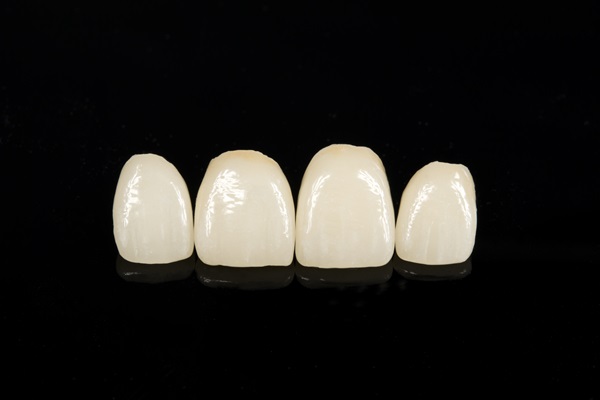3 Reasons Why a Dentist May Recommend a Dental Crown

Think you might need a dental crown? Read on to learn more about this restoration. Dental crowns play an essential role in restorative dentistry and are used primarily for correcting damage to the teeth. According to the Centers for Disease Control (CDC), 91% of Americans over the age of 20 have had cavities. Dental crowns are a great treatment to prevent further decay and restore the function of teeth.
3 Times when a dental crown may be recommended
The following are reasons a dentist may recommend getting a dental crown:
1. Restoration of damaged teeth
Dental crowns provide a restorative solution for teeth that have been significantly damaged by various factors such as decay, trauma, or infection. When the decay is so extensive that a simple filling will not suffice, a crown is placed over the tooth to prevent further deterioration and reinforce the tooth.
Another situation that requires crowns will be the wear and tear on teeth. Activities such as grinding (bruxism), clenching, and aging weaken teeth and make them more susceptible to fractures and cracks. Crowns enclose the fragile teeth to reinforce them and prevent further damage.
Moreover, a tooth after root canal therapy is likely to be more fragile and prone to breaking. Crowns are used to add power and durability while maintaining the function of the tooth, thus fortifying such teeth and prolonging their lifespans.
2. Improvement of aesthetic appearance
Dental crowns are functional, but they also correct cosmetic tooth problems. They can cover seriously discolored or even ugly teeth, hiding flaws and creating a look of healthy teeth. Crowns are made to mimic the appearance of the surrounding teeth to match the person's smile.
For patients who desire a more symmetrical and uniform smile, dental crowns could be made to match the natural teeth in shape, size, and color. This customizability allows for a more even-looking smile and a self-esteem boost for the patient.
3. Support for dental prosthetics
Dental crowns can be a strong base for dental restorations, besides their cosmetic and restorative uses. In bridgework, crowns are placed on natural teeth adjacent to a missing tooth gap as anchor points to hold the dental bridge in place. This setup replaces the missing tooth and restores the bite and smile aesthetics of the person.
In the case of tooth implants, crowns complete the restoration process. After an implant post is surgically placed and fused into the jawbone, a crown is mounted on the implant. This last action completes the teeth replacement process. The crown ensures the practical and aesthetic integration of the implant in the individual's dental arch, mimicking the appearance and feel of a healthy tooth.
In summary
Dental crowns are more than safety covers for broken teeth. They are complete solutions for issues ranging from protection and restoration to aesthetic enhancement of teeth. Getting a crown is patient-friendly and simplified, making it an accessible option for those seeking dental restoration. If you think you might need a dental crown, contact our dental office today to set up an appointment.
Request an appointment here: https://mhdentalny.com or call MH Dental NY at (646) 344-1449 for an appointment in our New York office.
Check out what others are saying about our dental services on Yelp: Dental Crowns and Dental Bridges in New York, NY.
Related Posts
Replacing lost teeth with a dental bridge has many advantages. Tooth loss does not just affect the appearance of the smile, but also the ability to talk and chew easily, teeth alignment, and the person’s confidence. A dental bridge closes the gap between teeth and prevents further damage. Read on to find out how bridges…
A dental implant is the gold standard in dental restorations. It can replace an entire tooth structure from the crown to the roots. This tooth replacement can enhance your oral function and health. Here are the details on how a dental implant can improve your quality of life.Research shows that oral structures work together to…
Dental fillings typically last between 10 and 12 years before they are more vulnerable to coming loose and requiring special dental care to be repaired. This review discusses how a dentist can treat a loose dental filling, along with insights into how long you can expect filings to last, the signs of a loose dental…
Looking for information on general dentistry preventive care? Many people think that routine appointments with a dentist are just for cleanings and examinations, however, that is far from the truth. These routine appointments can also be used for preventive care. Preventive care helps to keep the patient's teeth and gums in good oral health, by…











